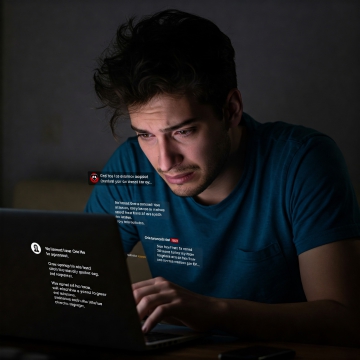Political trolls and how to fight them
In the digital age, the internet has become a powerful tool for communication, information dissemination, and political mobilization. However, with this power comes a dark side: internet trolls. These anonymous figures, often hidden behind pseudonyms and avatars, sow chaos and division online, and their influence extends beyond mere irritation. They are increasingly being used for political purposes, aiming to manipulate public opinion and undermine democratic processes.
What are internet trolls?
Internet trolls are individuals who deliberately post provocative, offensive, or misleading messages on online platforms, such as social media, forums, and comment sections. Their primary goal is to elicit reactions, disrupt discussions, and create chaos. They thrive on controversy and feed on the anger and frustration of their victims.
Why are trolls used for political purposes?
Political trolls are used for several reasons, including:
- Spreading disinformation:
- Trolls disseminate false information, conspiracy theories, and propaganda to influence public opinion and discredit political opponents.
- Promoting polarization:
- Trolls sow division by pitting people against each other and using hate speech. This can lead to social tensions and conflicts.
- Undermining democratic processes:
- Trolls attempt to undermine the integrity of elections by spreading disinformation and intimidating voters.
- Influencing the public agenda:
- Trolls can dominate online discussions and influence the public agenda by highlighting certain topics and ignoring others.
What can we do against political trolls?
Combating political trolls is a complex challenge, but several strategies can be applied:
- Promoting media literacy:
- It is essential to teach people to think critically and assess information for reliability.
- Holding platforms accountable:
- Social media platforms must take stricter measures to combat disinformation and hate speech.
- Collaboration between governments and technology companies:
- Governments and technology companies must work together to identify and dismantle troll networks.
- Limiting anonymity:
- Limiting anonymity online can make it more difficult for trolls to carry out their activities.
- Ignoring trolls:
- One of the most effective ways to combat trolls is to ignore them. Trolls thrive on attention, so by not responding, they lose their power.
- Report suspicious activity:
- When you see suspicious activity online, report it to the relevant platform.
It is important to remember that we are not powerless against political trolls. By being media-literate, holding platforms accountable, and working together, we can combat the dark side of the internet and protect our democracy.
Additional information:
By staying alert and critical, we can collectively create a safer and fairer online environment.
Organizations:
- FactCheck.org:
- A non-profit organization that checks the accuracy of claims by U.S. politicians.
- FactCheck.org
- Snopes.com:
- A website that investigates rumors, urban legends, and disinformation online.
- Snopes.com
- The Poynter Institute's International Fact-Checking Network (IFCN):
- An international network of fact-checkers that promotes the principles of accuracy and impartiality.
- IFCN
- Common Sense Media:
- This organization helps families navigate the digital world, with a lot of information about media literacy, and recognizing fake news.
- Common sense media
- For Dutch information about internet trolls and disinformation, please contact organizations such as:
- Mediawijzer.net (dutch information)
- StopPestenNu.nl (dutch information)
There are also various tools and apps available that can help identify disinformation and troll accounts.
Tools and tips:
- Reverse image search:
- Use Google Images or TinEye to check if an image has been manipulated or taken out of context online.
- Lateral reading:
- Instead of diving deep into one source, open multiple tabs to verify the credibility of the information.
- Check the source:
- Research the website or social media account that shares the information. Pay attention to the "About us" page, author details, and overall reputation.
- Be critical of headlines:
- Clickbait headlines are designed to evoke emotions and encourage clicks. Be skeptical of sensational claims.
- Media Bias Fact Check:
- This website rates the bias of news sources.
- mediabiasfactcheck.com
Key points:
- Disinformation can take many forms, including fake news, manipulated images and videos, and social media bots.
- It is important to be critical of the information you encounter online, especially on social media.
- If you are unsure about the accuracy of a claim, check it with a reliable source.
- It is important to be aware of the social media algoritms, and how they present information to you.

